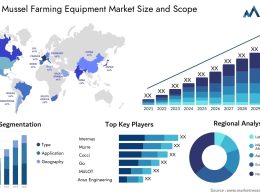Climate change is pushing American farmers to confront what’s next, and it’s not just about adapting to a warmer world. It’s about rethinking the very foundation of their industry.
For decades, American agriculture has been built on the assumption that the climate will remain relatively stable, allowing farmers to plant, harvest, and sell their crops with predictable results. But that assumption is no longer valid.
As the planet warms, farmers are facing a new reality: unpredictable weather patterns, shifting growing seasons, and increased pest and disease pressure.
These changes are already having a profound impact on American agriculture. In recent years, farmers have seen a significant increase in crop failures, reduced yields, and increased costs due to climate-related events.
“We’re seeing more frequent and intense weather events, which is making it harder for farmers to plan and manage their operations,” says Dr. Cynthia Rosenzweig, a climate scientist at NASA’s Goddard Institute for Space Studies.
But the challenges posed by climate change go beyond just weather events. The changing climate is also altering the fundamental biology of crops, making them more susceptible to disease and pests.
“Climate change is not just a weather problem, it’s a biological problem,” says Dr. David Lobell, a climate scientist at Stanford University. “It’s changing the way plants grow, and that’s having a big impact on agriculture.”
In response to these challenges, American farmers are being forced to adapt and innovate. Some are turning to new technologies, such as precision agriculture and vertical farming, to improve efficiency and reduce waste. Others are exploring new crops and farming practices, such as regenerative agriculture, that are better suited to the changing climate.
“Farmers are incredibly resilient, and they’re finding ways to adapt to the changing climate,” says Dr. Rosenzweig. “But it’s going to take a lot more than just individual innovation to address the scale of the problem.”
As the world grapples with the challenges posed by climate change, American farmers are at the forefront of the effort to find solutions. And while the road ahead will be difficult, it’s clear that the future of American agriculture will be shaped by the changing climate.
“The question is, what’s next?” says Dr. Lobell. “How do we build a sustainable food system that can thrive in a changing climate?”
That’s a question that will require a concerted effort from farmers, policymakers, and scientists. But it’s a question that must be answered, because the future of American agriculture depends on it.
“We’re at a critical juncture,” says Dr. Rosenzweig. “We have the opportunity to build a more sustainable food system, but it’s going to take a lot of work and a lot of collaboration.”
As the world looks to the future, one thing is clear: American farmers will be at the forefront of the effort to build a more sustainable food system. And it’s a challenge that will require all of us to work together to find the solutions.
“It’s not just about farming, it’s about the future of our planet,” says Dr. Lobell. “We have to get this right.”
“We’re not just talking about food, we’re talking about the very foundation of our society,” says Dr. Rosenzweig. “We have to make sure that we’re building a food system that’s sustainable, equitable, and just.”
That’s a tall order, but it’s a challenge that American farmers are ready to take on. And as the world looks to the future, it’s clear that the future of American agriculture will be shaped by the changing climate.









